When it comes to living the Mediterranean way, a well-stocked pantry is essential. Maybe you’re seeking a healthier life through the Mediterranean Diet or just love the bold, vibrant, and robust flavors of the more than 20 countries surrounding the Mediterranean. Whatever your reason, quality oils, herbs, nuts, and spices are cornerstones of Mediterranean cooking.
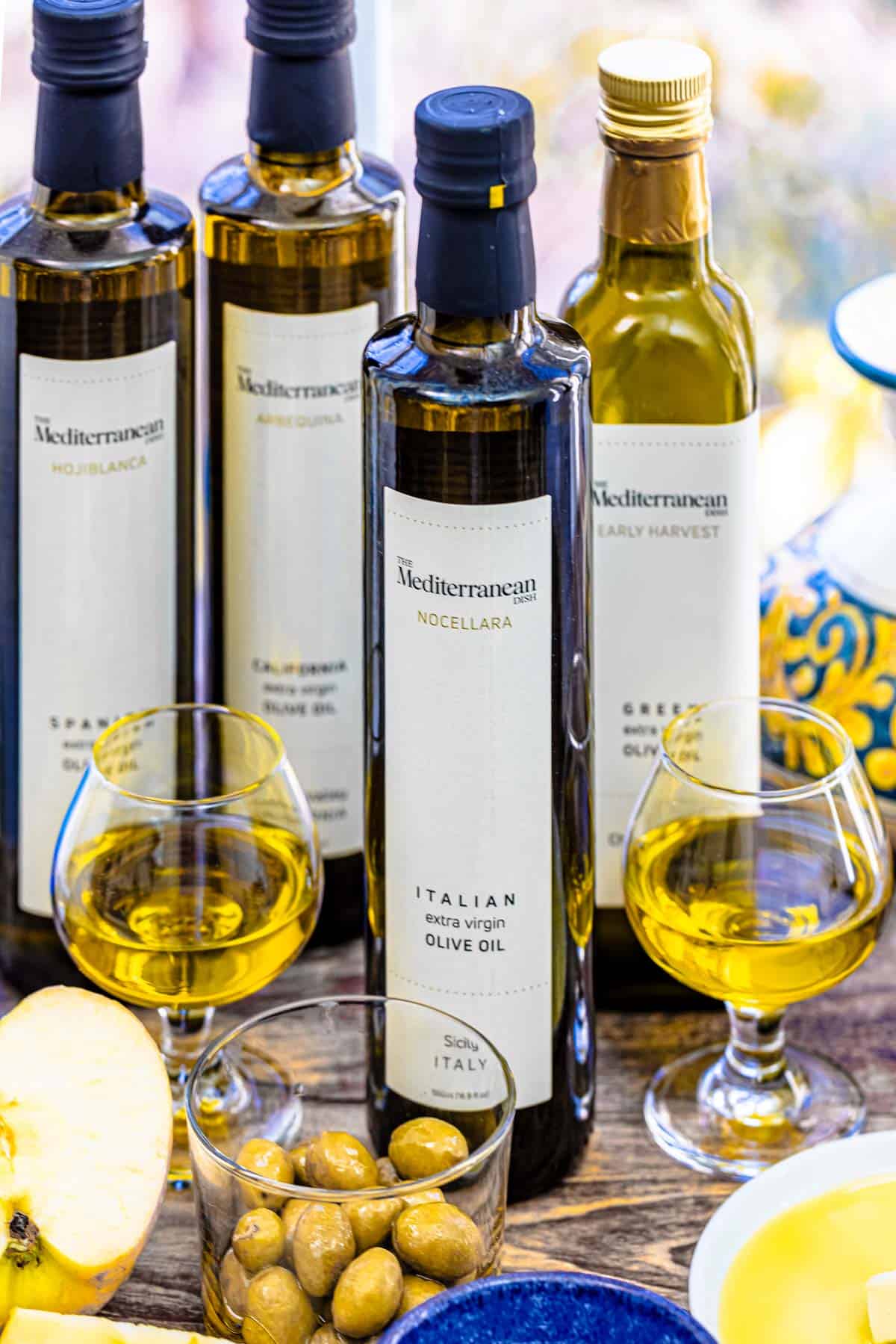
Mediterranean cuisine is filled with exciting flavors! Think of the fresh, sweet taste of basil and mint, the bright notes from parsley, the warm tones of cumin and allspice, or the floral scent of saffron. These flavors and many more grace the Mediterranean table in both sweet and savory recipes.
However, if you are new to Mediterranean cooking, it can be overwhelming to determine where to start and what is needed to stock your kitchen and pantry. Hopefully, this guide will help you find the spices, sauces, and cooking oils for your Mediterranean Pantry.
To help you begin your culinary journey, we compiled a list of The Mediterranean Dish’s most frequently used herbs, spices, and other essential items.
Mediterranean Pantry Essentials
Spices have long been an integral part of Mediterranean cooking. Beyond the ability to transform humble ingredients into a tasty little feast, their powerful plant-derived compounds offer disease-preventing and health-promoting properties.
Many Mediterranean and Middle Eastern countries use the red threads of Saffron to perfume rice in recipes like Seafood Paella, Risotto alla Milanese, and the golden-hued Saffron Rice. Just to name a few.
People in the US might think of allspice as something to add to baking, but in Mediterranean countries, this versatile spice is added to ground meat in recipes like Kofta Kebabs or Fatayer, little pockets of dough filled with spinach and onion.
And cumin, well, we put it in almost anything where we want an earthy balance to the dish. Don’t even get me started on how Aleppo pepper and Urfa Biber go as beautifully with vegetables and fish as they do on grilled pineapple!
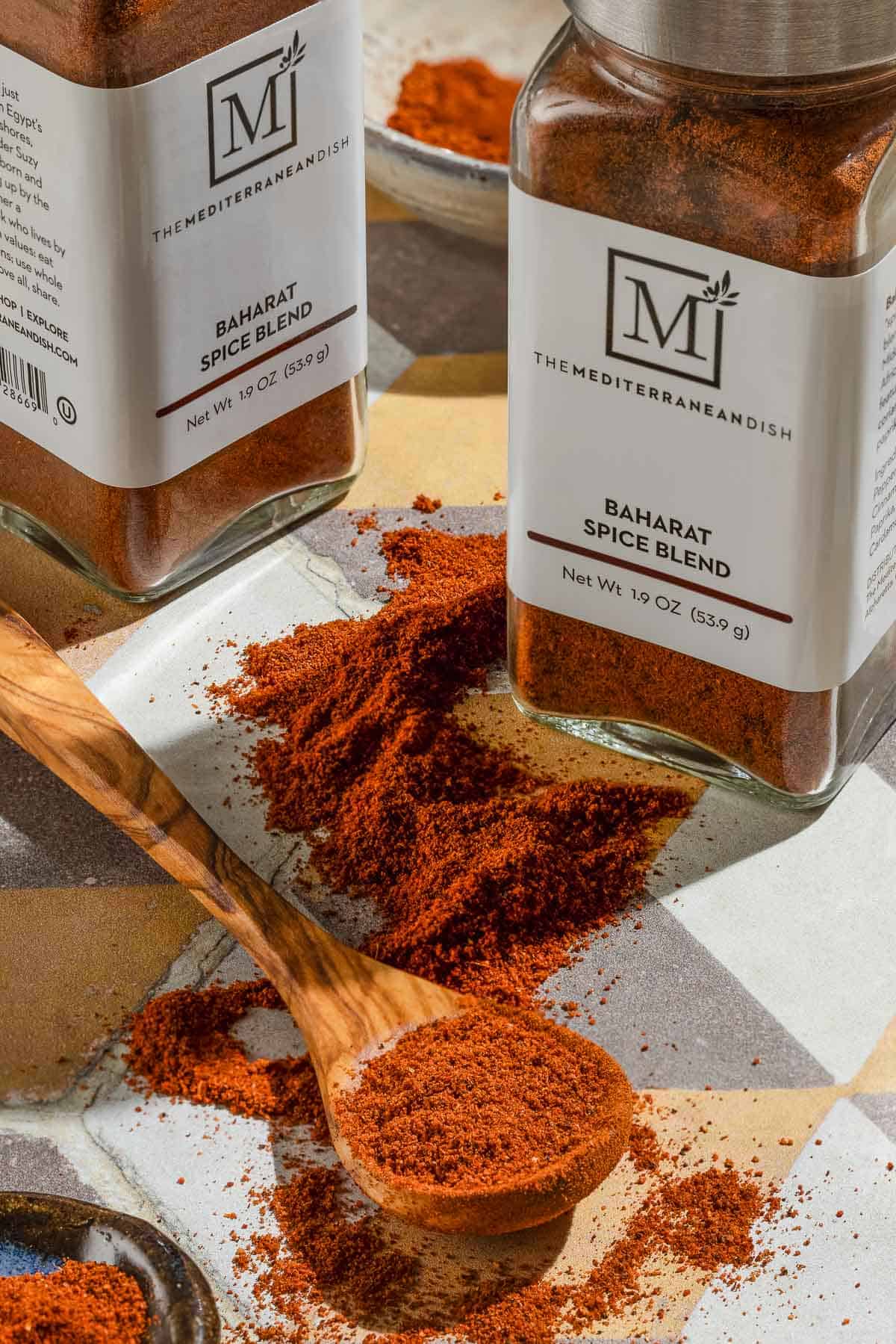
Mediterranean Spices to Stock Your Pantry
Aleppo pepper (READ MORE: What is Aleppo Pepper?)
Allspice
Baharat Spice Blend (READ MORE: All About Baharat?)
Dried bay leaves
Cardamom
Cayenne pepper
Cloves
Coriander
Cumin
Dill weed
Garlic powder
Nutmeg
Oregano
Ras El Hanout (READ MORE: What is Ras El Hanout?)
Rosemary
Saffron (READ MORE: What is Saffron?)
Sumac (READ MORE: What is Sumac?)
Thyme
Turmeric
Urfa Biber (READ MORE: What is Urfa Biber?)
Za’atar
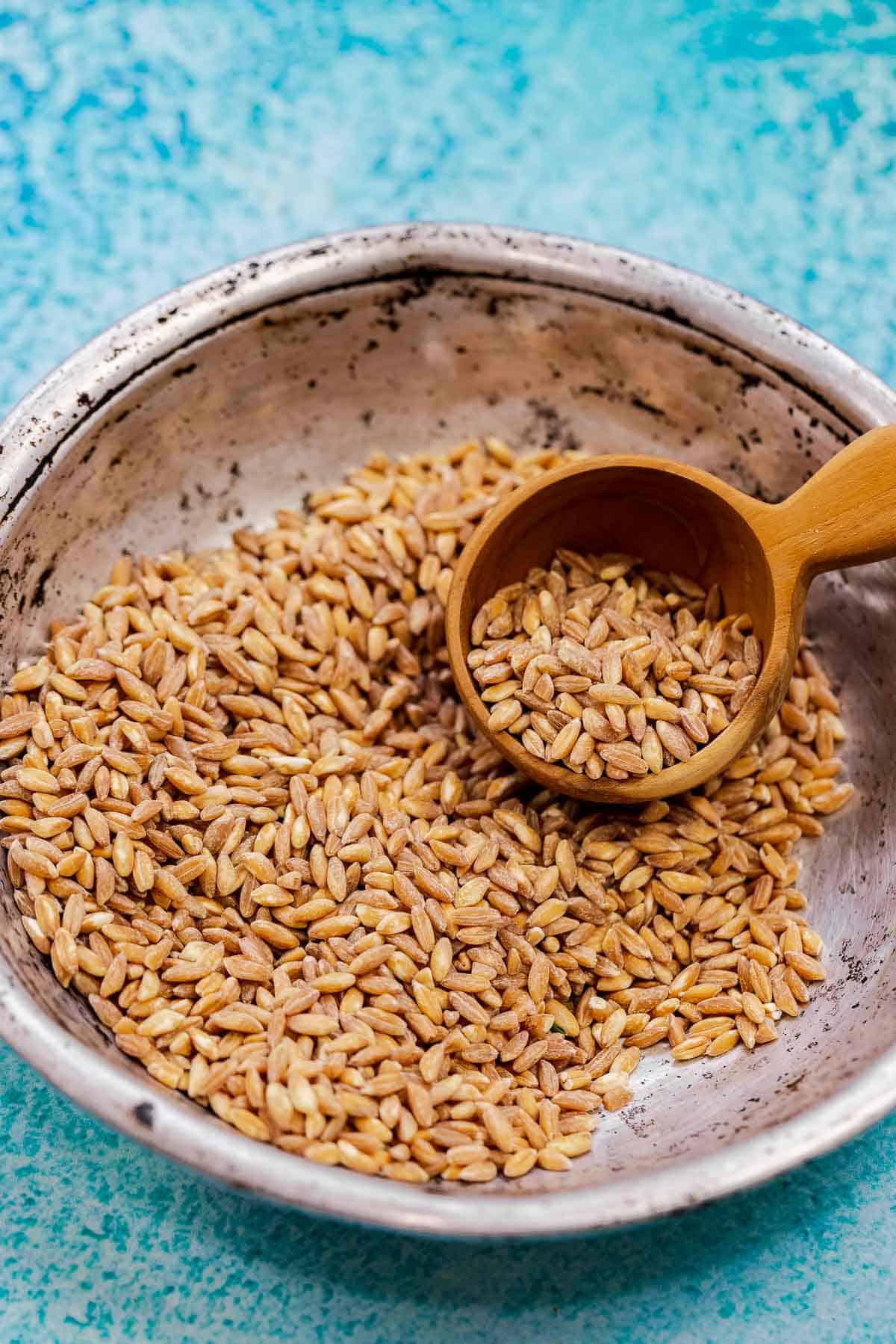
Oils, Sauces, Grains, Beans, and Legumes
In addition to spices, olive oil is the primary fat used for salad dressing, baking recipes like this Orange Cardamom Olive Oil Cake, and anything you could cook on the stovetop, grill, or oven. We consider it liquid gold due to the high levels of polyphenols (antioxidants.)
- READ MORE: Cooking with Olive Oil: Everything You Need to Know
- TRY IT: Shop Quality Olive Oils from Spain, Greece, Italy and more
Tahini (READ MORE: What is Tahini?)
Extra virgin olive oil
Lentils (black, red and yellow)
Bulgur
Couscous
Maftoul (also called Pearl Couscous)
Short-grain or Egyptian rice
Pasta (Orzo, spaghetti, elbow)
Raisins
Fava beans
Kidney beans
Chickpeas
Tomato sauce
Canned diced tomatoes
Canned artichoke hearts
Canned tuna
White vinegar
Balsamic vinegar
Dry red and white wine
Sun-dried tomatoes
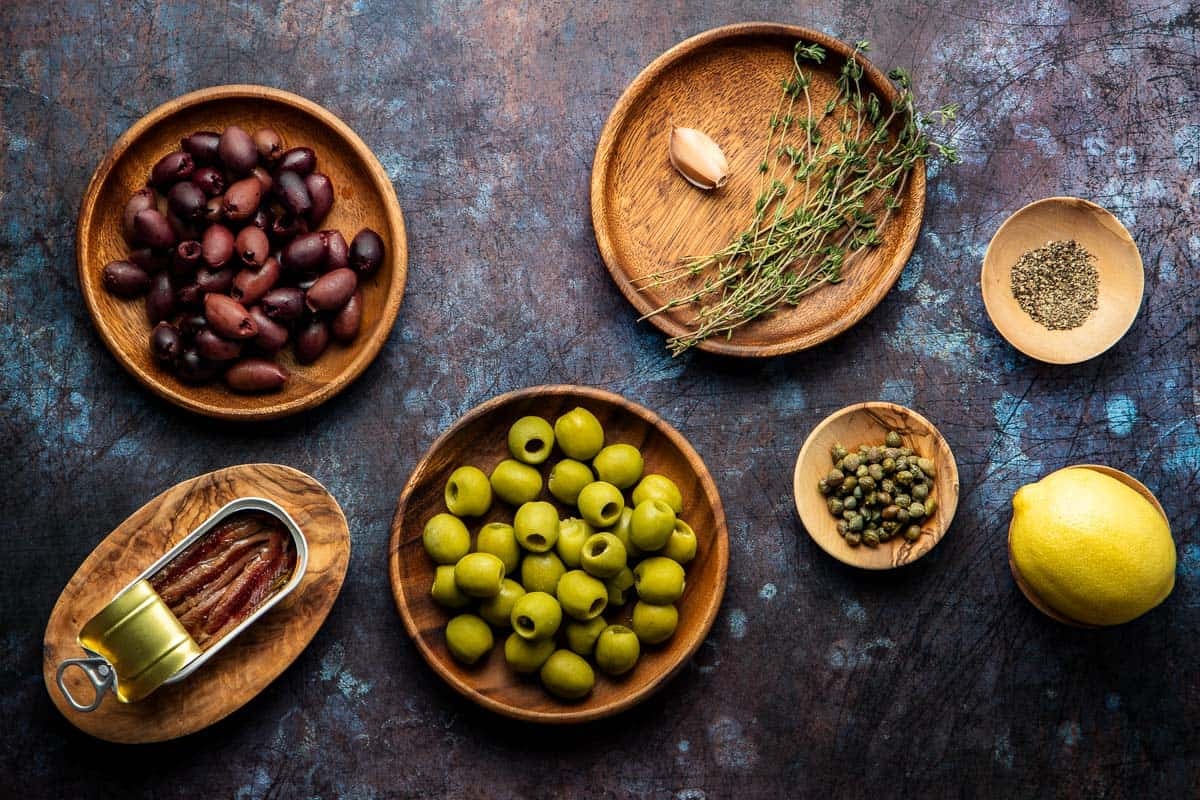
Nuts and Olives
It’s best to store nuts in the freezer so they stay fresher for longer.
Pine nuts
Slivered almonds
Shelled pistachios
Shelled walnuts
Black olives
Spicy green olives
Kalamata Olives
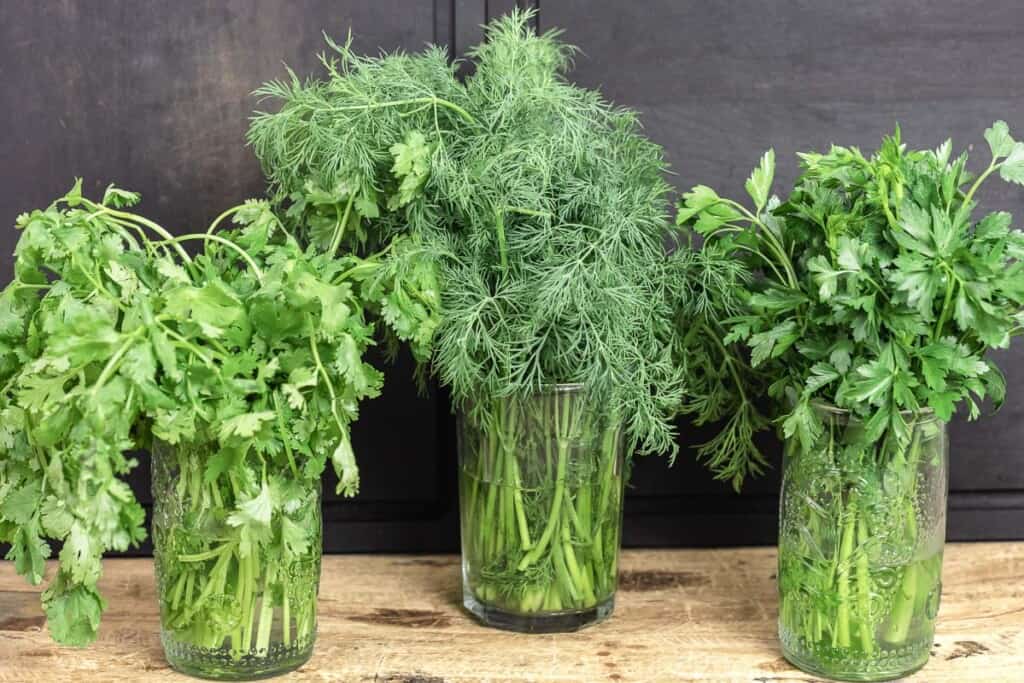
Herbs and Fresh Flavors
Mint
Flat leaf a.k.a. Italian parsley
Cilantro
Basil
Chives
Arugula
Onions
Shallots
Fresh garlic cloves
Limes
Lemons
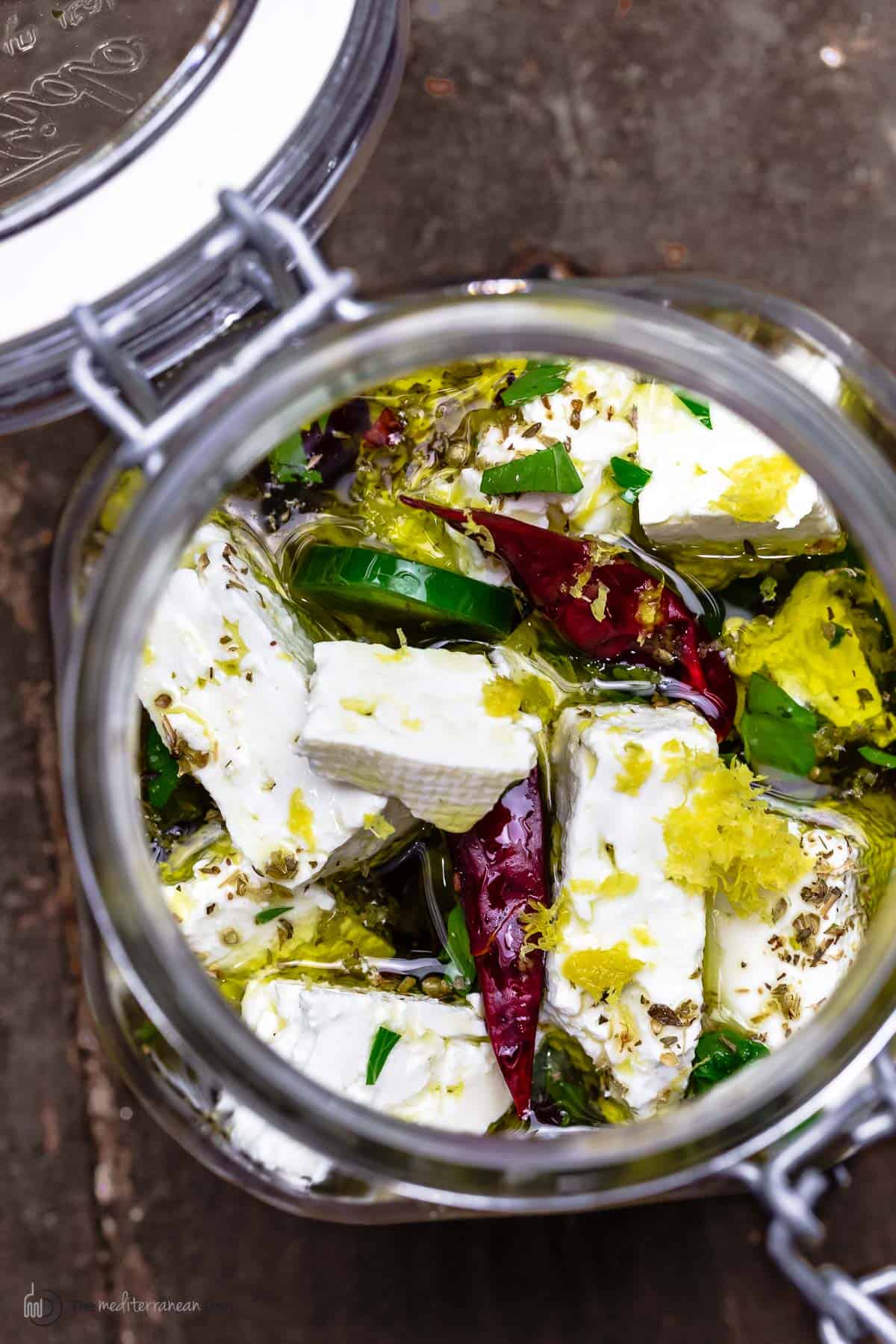
Cheese
Feta stored in brine
Mozzarella
Grated Parmesan
Goat cheese
Halloumi
